#malayalam cinema
Explore tagged Tumblr posts
Text







AAVESHAM (2024), dir. Jithu Madhavan
#filmedit#movieedit#mollywoodedit#aavesham#filmgifs#moviegifs#cinematv#dailyflicks#dailytvfilmgifs#malayalam cinema#fahadh faasil#twfire#twblood#bollywoodedit#*#roedits#fafa fucking ppl up#thats my baby#q
163 notes
·
View notes
Text











പ്രഭയായ് നിനച്ചതെല്ലാം | All We Imagine As Light (2024) dir. Payal Kapadia cine. Ranabir Das
#പ്രഭയായ് നിനച്ചതെല്ലാം#all we imagine as light#Payal Kapadia#Ranabir Das#Kani Kusruti#Divya Prabha#Hridhu Haroon#cinema#film#cinematography#screencaps#movies#film stills#my screengrabs#indian cinema#Malayalam cinema
43 notes
·
View notes
Text
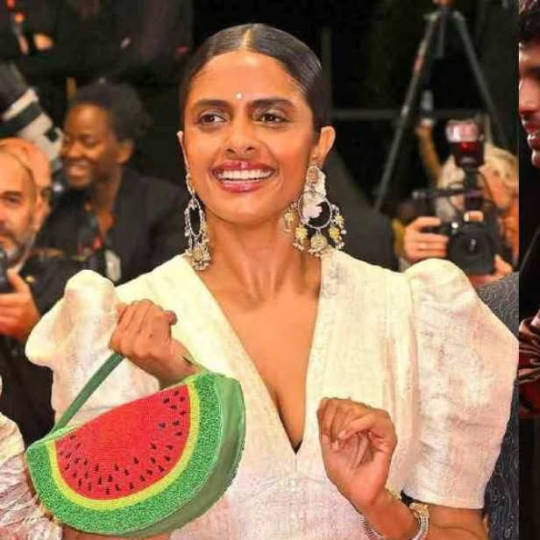
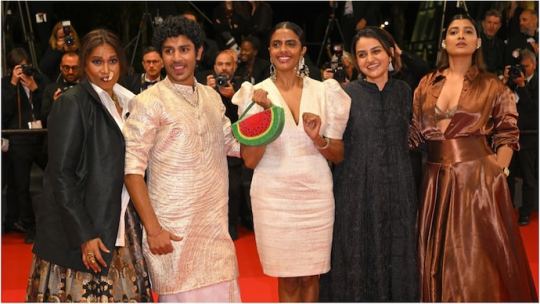
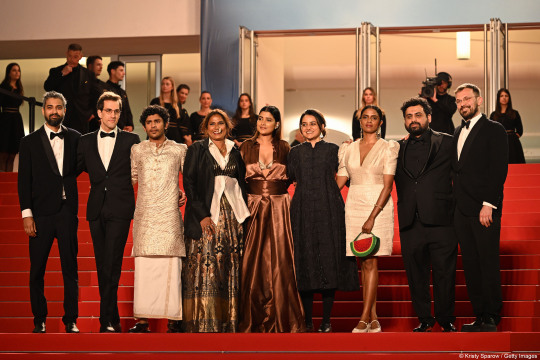
#All we Imagine as light#kani kusruti#Malayalam Cinema#Cannes Film Festival#Payal Kapadia#Solidarity#Palestine
54 notes
·
View notes
Text
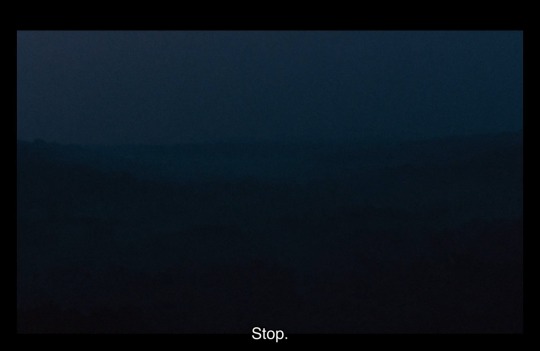


All We Imagine as Light (2024)
#all we imagine as light#payal kapadia#divya prabha#malayalam#Indian cinema#film#films#Malayalam cinema
18 notes
·
View notes
Text
Watching Jana Gana Mana and my jaw was on the floor at this scene, Prithvi was just so brilliant in this movie and the message was so important as well. Truly impressed with the way they presented this one with many twists in the process. Can’t wait for the sequel that we don’t know yet when it will came out because Prithvi have so many sequels in line (Salaar 2, Lucifer 2, Jana Gana Mana 2. Hopefully we gonna get all the sequels soon!)
#prithviraj sukumaran#malayalam cinema#jana gana mana#he is such a terrific actor#love him even more after watching his other movies beside#salaar#he is also a really good director with his bro daddy and lucifer#he is too talented for words#just so damn good#prabhas voice like sir how many talents you have like how many lol#politics#indian politics#politics of hate#speech#incredible speech
42 notes
·
View notes
Photo

The Journey/Sancharram (2004)
26 notes
·
View notes
Text

Throne of Capricorn, G. Aravindan, 1975
#Uttarayanam#Throne of Capricorn#G. Aravindan#1975#Govindan Aravindan#1970s#Indian Cinema#Malayalam Cinema#My Gifs
23 notes
·
View notes
Text
Kaathal – The Core

[ Available for streaming on Amazon Prime. This is an appreciation post. A proper criticism by experts linked at the bottom of this post.
CW: heterosexism PSA: Hema Committee Report
This post is my 2nd contribution (1st can be found here) to the conversation regarding Indian queer media that started in October 2024. I recommend this post by @neuroticbookworm and this post by @nihilisticcondensedmilk as well as this compilation by @starryalpacasstuff before reading this.
Throughout this post by the term Nasrani, I mean Roman Catholic Syrian Christians.]
Love, the Core


The title of the movie is very interesting. Kaathal (കാതല്) in Malayalam refers to the heartwood of a tree. Hence, it can mean pith or core (as the subtitle suggests). It is homophonous with the Tamil word kaathal (காதல்) which means love. Average Malayali audience is familiar enough with the word kaathal as love to make that association faster than with heartwood. This bit of word play conveys that it is love that’s at the core of the movie. And that the queerness central to the movie is practically essential.
Catholic Background

The movie opens on a Sunday Mass and we get first glimpse of several important characters as the camera pans through the crowd to the accompaniment of the continuation of the third g’hanta prayer, the one that follows the Institution Narrative, that praises the grace bestowed upon the human kind. The order in which we get a glimpse of the characters is also important, I think, especially considering the distance from alter. While this scene is easy to forget, it establishes which community they belong to - Nasranis as indicated by the East Syriac Rite liturgy. The particular prayer choice is interesting:
Forgiving our debts, You sanctified us sinners, enlightened our minds, defeated our enemies, and glorified our frail nature by Your immense grace.
Tight-knit & Rurban
In the next scene we get a glimpse of how tight-knit their community is through a conversation about pork sharing[1]. This is followed by Femy, Mathew's daughter, hitching a ride on someone’s scooter indicating she studies out of town and is back home to spend whatever is left of the weekend. The scene between Omana and Femy foreshadows that Omana’s silence on the matter of divorce is going to be a thorn in the upcoming election campaign.
Sibin drags Mathew to try and break off an inter-class heterosexual couple whose love affair is disapproved by the woman’s family, for the man is a migrant worker. The intention is to secure Mathew four votes from the family through Mathew’s intervention. Sibin informs that the Local Committee has decided that Mathew would be their party’s candidate in the by-election in ward 3. When Mathew inquires if that’s their party's stand on love, Sibin doesn’t sugar-coat the fact that on the ground the party has to appease the conservative politics of their core vote bank (working-class folks like Rajan) in spite of their more liberal views online. Ironically, Mathew stands up for the couple and right behind him stands his own paramour, Thankan.
Less-Discussed Facets of Queer Life – The Wife*
Kaathal focuses on Omana, who was unwittingly married to an androphilic man, as much as it focuses on queerness, outing and heterosexism in general. While it's not rare for movies to have queer characters in Malayalam, it's very rare to have movies which focus on queer characters and even rarer for the focus to be on their spouses. My Life Partner (2014) and the bio-pic about the poet Kamala Das, Aami (2018) are the only other such Malayalam movies as far as I can remember and the married man in both these movies were ambiphilic (aka bisexual).

Omana struggles in their marital life for two decades and we meet her when she's trying to get a divorce from Mathew. In an unfortunate twist of events, her submission to the court which was supposed to be a private thing, becomes public knowledge and topic of discussion since Mathew is a candidate in the by-election to ward 3 of Teekoy panchayath**. Since there is no other election happening at that time, all energy and gossip is focused on this particular candidate’s scandalous divorce procedure. It becomes public knowledge way too fast and even before she could explain herself, everything basically goes out of control. While Mathew is reasonably upset with her, we learn during the court procedure that he was always reluctant to discuss divorce.

Omana is a stand-in for all the women who are married to men who are not gynephilic and therefore have to struggle in the marriage because their emotional and sexual needs are not met. Kaathal is not the only movie discussing this in the recent years. We have seen two very famous movies Dear Ex (2018) and The Blue Caftan (2022) which talks about the same topic but from very different angles.

Dear Ex is about the relationship between a woman and her husband’s paramour after her husband is dead and the insurance money goes to that male lover. The male lover has been the one who was taking care of her husband when he was very ill and she reels from the doubt whether her husband ever loved her.

In The Blue Caftan, the wife is about to die and she implicitly gives permission for her husband to pursue the young apprentice whom she did not like in the first part of the movie but later warms up to when she realise she mistook him and accused him of things that he didn't do (for which she feels guilty) as well as the support he offers when he finds out that she is ill and helps her husband take care of her despite the husband backing off when things got murky between them. The young apprentice returns to take care of her and their shop - their dreams and legacy.
In Kaathal, no-one is dying. The movie is very idyllic in an odd, tearful way despite the drama. (Probably Malayali folks are moved to tears just by seeing Mammootty cry and the effect might not be the same on non-Malayalis.) It is about the woman getting divorce and the couple moving on with their lives. This sort of happy ending which is a little too unrealistic considering overall tone leans towards realism.
Adultery Situation
While it is not okay for Omana's affidavit to have leaked and for Thankan to be outed, there are very few precedents to the legal battle she was entering. Daniel Crasto vs The State of Maharashtra (an actual case referenced in the movie) is what inspired advocate Ameera to move the court in a manner that would allow for divorce proceedings to not take a decade as it did with the case referenced (filed in 2009, final judgement in 2019). The courtroom sequences in the movie are set up to be informational and gives answers to a lot of questions that are obvious to arise. I wish the movie had mentioned the circumstances of decriminalization of adultery (Joseph Shine v. Union of India (2018)) in India and how that too plays into the divorce procedure.

Omana had already discussed the matter with her daughter as well as with her mother. But the men in her life are kept out of the conversation before filing the case since the previous experience are not exactly confidence inspiring. Having discussed it with her father and not getting any support or reassurance, Omana is set up to be the 21st century foil to Alice from K. G. George’s iconic movie Adaminte Vaariyellu (1984) where interestingly, Mammooty’s character was the paramour.
Malayali Christian Masculinities
While Omana’s father, Philip, is only mentioned, his presence looms large in spite of him being dead and gone. He is a reflection of the type of Nasrani hyper-masculinity that had been dissected through many Malayalam movies including RDX, Joji, Appan and Aarkkariyam in recent years. Omana’s brother, Tomy, struggles to break out of the mold he was raised in and tries to be a supportive elder towards the end.

Given the kind of patriarchy she was raised under, it is not surprising Omana had kept quiet for so long, raised their child together and put in effort to hide their marital troubles and to lead a harmonious seeming life in front of others.

An important dimension to Omana, comes from her relationship with her father-in-law, Devassy***. The depiction of their relationship is inline with a trend in recent Malayalam cinema, where characters’ relationships with their parent(s)-in-law outwears those with their spouses and lovers. In The Teacher (2022), the woman’s mother-in-law (a local Communist leader) supports her decision to separate from her son as well as enlists the help of a thug (one of my favourite queer side characters who has the most delightful pairing with a super jealous, law-bending cop) to help her exact revenge. Meanwhile, in Ullozhukku (2024) the woman decides to leave her paramour for her mother-in-law.
Devassy represents a different type of masculinity which we also see reflected in Mathew. This form of Nasrani masculinity too is a familiar flavour in Malayalam cinema, like in the excellent Maheshinte Prathikaaram (2016). Omana finds in him a father whom she did not have but dearly wished for. They partake in the same pain ever since Femy was born and Mathew did not show up to bring Omana home as he was busy taking care of Thankan. (It is customary for women to return to their native home (Omana’s native home is in Meppara) when they are pregnant, especially during their first pregnancy, and to return to their patrilocal or neolocal residence after the baby is born.) Devassy’s political leanings, especially him abandoning centrist UDP (stand-in for the Indian National Congress-led UDF alliance) during the days of Emergency and joining CRP (stand-in for the Communist Party of India (Marxist)-led LDF alliance), is also indicative of the left-leaning values he held. It is also interesting to note that Devassy had thought to take Mathew to a doctor when he learned that he is androphilic (an approach indicative of the time as it was before homosexuality was depathologized).
Another brand of Christian masculinity get a passing mention when Mathew's sister calls Devassy to complain about the loss of social capital her probably un(der)employed husband faces abroad who has to renegotiate his masculinity at every step as a migrant. Men lose their purpose when they move abroad with their bread-winner wives since they are raised with certain values and motivations that are difficult to unlearn. They seek and find solace in their community gatherings. Loss of social capital gets reflected in their lives abroad too and social auditing would make their lives difficult.
Husband, Lover, Wife

Omana loves Mathew deeply. They have actually found companionship in each other. The platonic love between them is hinging on mendacity and selfishness. They have been with each other for a good chunk of their lives and Mathew is reluctant to let go of Omana. When she chooses to free herself from their entanglement, it is also to liberate Mathew from the shackles they have bound themselves with.




Thankan on the other hand is completely disempowered in this particular scenario. As his friend, Rajan Mesthiri points out Matthew has wealth that he would inherit from his father whereas he has nothing. Because of this scandal, he was losing social capital and has to survive cruel homophobia everywhere - in the junction, at his place of work and even on the wall of his yard where miscreants engrave slur (kundan). This is on top of him struggling with loneliness and deprivation of love. A particularly harrowing sequence is of him packing snacks on behalf of the shopkeeper to give to Devassy who dotes on his daughter-in-law and buys her favorite snacks daily. Among the love denied to Thankan is that fatherly affection reserved for one's child's spouse.


Thankan is all on his own. He is a working-class man who lives by himself before his nephew, Kuttayi, took refuge there. There isn't any other familial support system. People are willing to send their daughters for driving classes with him due to a twisted form of benevolent heterosexism.
Meanwhile, Mathew has lots of people offering him support and stand with him, denying allegations and supporting him as a queer candidate, even though he doesn’t appreciate that.

Mathew doesn't hang out with Thankan in the public eye. He sticks to the story that they are just acquaintances and people would believe that since their dalliances happen in Pullikkanam (a village in Kottayam-Idukki border) and in Teekoy they are just acquaintance. The only visible connection between them other than longing stares and campaign notice is a framed school photo of them that hangs in their respective homes. They have been lovers since their school days and have been hiding that fact as much as they could.
It is like Thankan is being left behind. The kind of deprivation of social capital along with childlessness indicates that no one is going to take care of him in his hour of need. Mathew receives a lot of support from party members and others and lot of people come to his rescue, partly due to him having served in their service co-operative bank for more than two and half decades.
Co-operative banks, unlike commercial banks, are run locally by elected members and provide financing that the community requires. Since those involves a lot of trust and relies on social capital, the discretion exercised by bankers is crucial in risk-assessment and in securing credit to those who need it. In November, you could find co-operative societies and banks in Kerala decorated with rainbow flags (the ones with seven colour, different from the queer-pride rainbow flags).
Progressive versus Realpolitik
There is strong anti-incumbency in ward 3 as indicated by displeasure over lack of infrastructural development, a bridge in a notable case. Tomy's construction job dreams hinge on Mathew's victory. Moreover, in the challenging times (rise of Hindutva), CRP needs to strengthen itself.
The realpolitik is in how the Communist party, CRP, sides with Mathew and doesn't reach out to Thankan, one among proletariat they supposedly stand with. It is also in how they pander to the conservative views of their vote bank. It is there in choosing Mathew, a Catholic, to represent party in the election in hopes of winning over Nasrani voters in their ward. It is in asking Mathew to speak to the vicar about this matter. It is also in their attempt to demonstrate their stance on personal liberty by insisting Mathew should contest and they are making a statement by fielding ‘a candidate like him’ in the election. It is in how the party is politicizing and employing an outed man’s identity without consulting with him first while knowing that it is putting so much additional pressure on him. This can be seen as a critique of leftist political movements in Kerala from leftist creators including Jeo Baby and Mammooty.
Owning the Narrative

The movie has a member of Queerla meet with Mathew outside of the family court. (Queerla is one of Kerala’s organisations focused on the welfare of sexual and gender minorities. The others are Queerythm and Sahayathrika.) But under those circumstances, he is not in a position to welcome the help the organisation could offer him. Eventually, after reconciliation with his father, after having to confront the fact that he was losing the case and Omana, that he comes to his senses and allows himself to realise that he might not be on the right track and that he can come out, that too with Omana insisting that he should also be free for she cares and loves him. So, he lets her go, accompanies her to Meppara, to her native home and invites Thankan fully into his life. Omana and Mathew continue to support each other.






When Mathew comes out through a video that Femy shoots for him, it becomes a state-level news. The fact is that Kerala is yet to have any openly (there have been closet cases) queer candidates win elections. Maybe we will have such a candidate in the future. The actor who plays the role of Femy in the movie is openly bisexual.
Church, the non-Monolithic Presence

Teekoy vicar is presented as an open-minded person. But, he is an exception. Bishop House and the church committee do not share his opinions on the matter of divorce and non-heterosexual union. However, the bible verses and prayers place emphasis on truly open-minded and all-embracing religiosity.
Trivia
There are multiple reasons why this movie is to Little Hearts (2024) what Great Indian Kitchen is to Jaya Jaya Jaya Jaya Hey and would make for an excellent pair watching.
There has been complaints that we missed out on a chance to watch Mammooty romance with a man. So, here's the kiss scene between Mammooty and Mohanlal in Nanayam (1983).

[* Chinese use the term tongqi (同妻) to refer to a woman married to a gay man. Beard is a close enough term but doesn't convey the information asymmetry. There are no such popular terms in Malayalam.]
[** Administration in India is divided between union government, state governments/union territories and panchayat/municipalities/municipal corporations. Teekoy (and all other locations in the movie are real locations in Kerala) is an actual panchayat (a village consisting of sub-divisions called wards) in the state of Kerala. The elected representative (referred to as member) of ward 3 was Kurian (of UDP) and it is to fill his seat after his passing that the ward is facing a by-election soon.
While Kerala has multiple parties with varying ideologies, most important among them are those which form part of the two alliances that have ruled the state: Left Democratic Front and United Democratic Front. CRP and UDP are stand-ins for these two in the movie. Biggest political part in the world, BJP, although is part of the ruling collision (NDA) in the union government as well as in several state governments, is not as significant as the others in Kerala, especially in state legislature. BJP is represented by DJP in postures. In places such as Teekoy their influence is even less significant and remains so in the movie too.]
[*** Devassy is the Malayalam variant of name Sebastian.]
[1] Pig being a large enough animal to involve more than a family to finish it off.
-


I am yet to choose between Gaami (2024) and Moothon (2019) for my next appreciation post. If you decide to watch Gaami, please feel to ask about content warnings. I think it is better to watch the movie without reading about it.
youtube
Indian Queer Media: Little Hearts | Kaathal the Core | Gaami | Mumbai Police |
#queer indian media#media recs#movie recs#queer movies#asian dramas#indian shows#desiblr#asian lgbtq dramas#asian media#indian media#queer#indian queer culture#mollywood#malayalam#malayalam movies#desi cinema#kerala#malayalam queer movies#indian queer media#indian queer movies#malayalam movie#malayalam cinema#kaathal the core#mammootty#jyothika#lgbt#lgbtq#lgbtqia#gay
12 notes
·
View notes
Text










BEST OF 2024 Manjummel Boys മഞ്ഞുമ്മല് BOYS Directed by Chidambaram
24 notes
·
View notes
Text
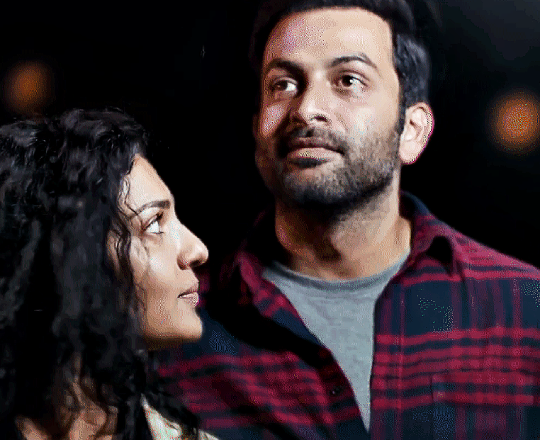
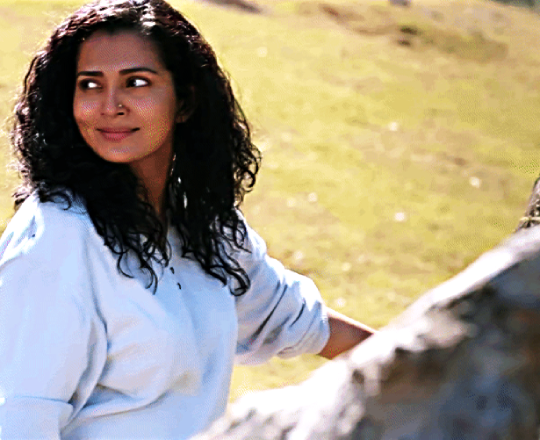

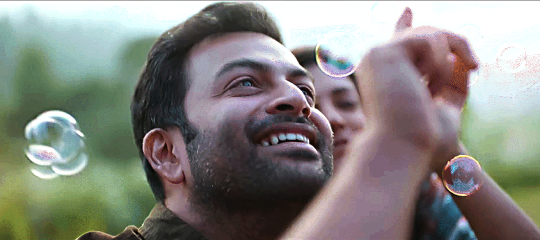
Prithviraj Sukumaran and Paravathy Thiruvothu in Vanaville, Koode (2018)
#prithviraj sukumaran#He's a literal bbg in this movie#like literally#paravathy thiruvothu#koode#malayalam cinema#indian cinema#cinemaedits#movie gifs#prithviraj gifs
34 notes
·
View notes
Photo
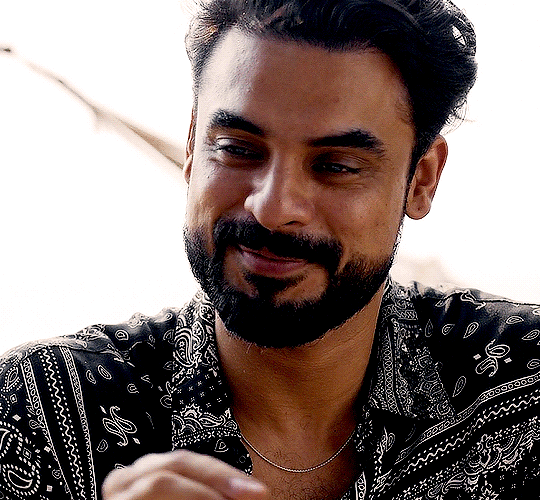
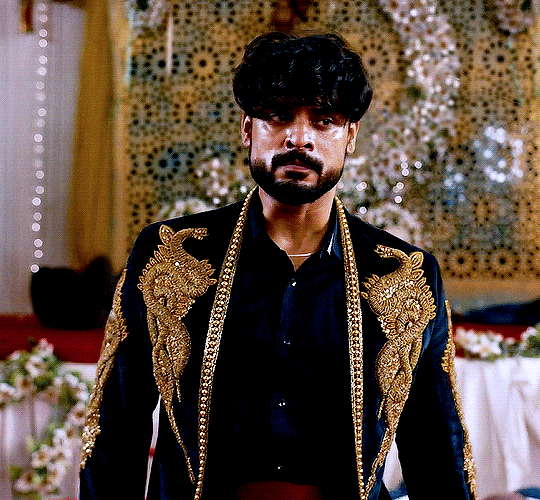

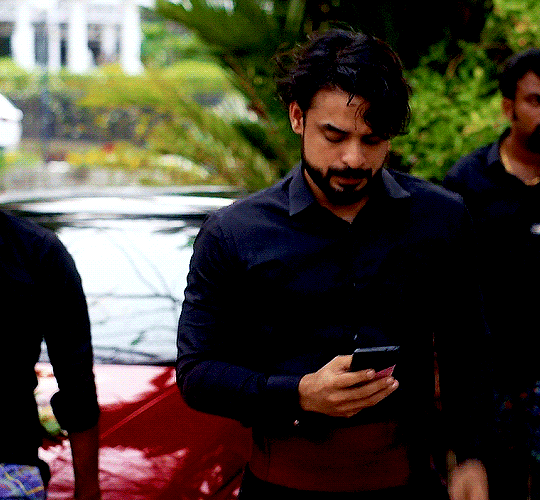
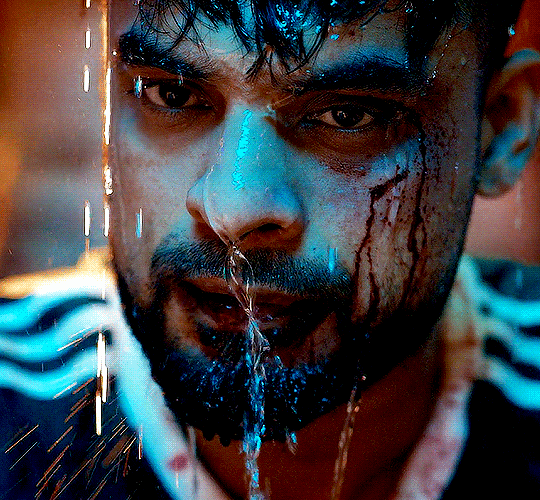

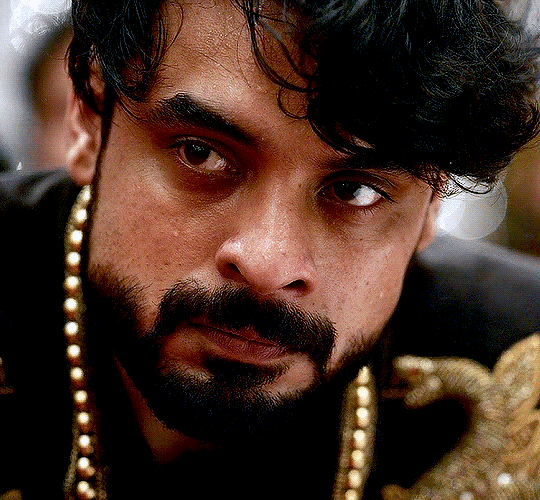

TOVINO THOMAS in THALLUMAALA (2022)
#filmedit#movieedit#mollywoodedit#filmgifs#dailytvfilmgifs#dailyflicks#tvandfilm#cinematv#malayalam cinema#moviegifs#userfilm#mollywood#tovino thomas#thallumaala#bollywoodedit#*#roedits#twblood#the fight scenes were shot so well#plus tovino's looking fine as hell#q
232 notes
·
View notes
Text
Best of 2024: Favorite Malayalam Films
January 5, 2025
by Inakshi Chandra-Mohanty
1. Bramayugam

A low-caste singer escaping persecution stumbles upon a desolate mansion containing mysterious secrets in this vintage horror drama. Shot entirely in black and white, to reflect the centuries old period and amplify the light/dark disparities, Bramayugam is a masterpiece in cinematic expression. Visual storytelling is at the heart of this film. The meticulous frames, brooding background score, and a menacing performance by Mammootty, build an ominous atmosphere. Like writer-director Rahul Sadasivan's previous supernatural thriller, Bhoothakalam, this film doesn’t rely on cliched horror elements and instead operates in a slow burn fashion, the dread, the terror gradually growing until we find ourselves trapped in the home’s existence.
But the horror in the film isn’t just the fear of the mystical elements that haunt this ancient home. It’s the horror of human evils, such as greed for power and caste/class discrimination. A mythical beast and frequent jump scares cannot combat the fear of an aristocratic lord with disdain for those below him. And it is in this blend of imaginary horror with real atrocities that Bramayugam scores.
2. Aattam

12 angry men…and a woman. This is an apt tagline for the acclaimed Malayalam psychological drama, Aattam, winner of best feature film at the 70th National Film Awards. In an amateur jury deliberation setup, a nod to the acclaimed Hollywood courtroom drama, the members of a theatre group convene in a debate after their sole actress is molested by one of the twelve men. The congregation comprises of a variety of different personalities from the un-believers to those seemingly concerned to the image prioritizing individuals. But one thing is common. All downplay the serious nature of the act and none of them are as they seem.
The film is both a whodunnit and a thought-provoking commentary. It builds suspense through slow reveals about each character as the day progresses, but also subtly portrays society’s ingrained patriarchy. It’s a perfect counter to those parading the tag of ‘Not All Men’. Most of these men aren’t openly misogynistic or dismissive, but their support is conditional. We see how perspectives shift and accusations amount in this stark representation of the hypocrisy of men that ultimately leaves women ally-less.
3. Ullozhukku

The saas-bahu relationship is one of the most negatively stereotyped in Indian media. Hence, it is always refreshing to see content that delves deeper into the fractured foundation of this bond, showing how deep-rooted patriarchal notions create complexities between women living in the same household. In Ullozhukku, Leelamma and Anju, mother-in-law and daughter-in-law, are forced to confront secrets that question the basis of their relationship as they attempt to bury a loved one amidst raging floods in Kerela. The title translating to ‘undercurrent’, represents both the watery atmosphere and the underlying feelings they are unable to express openly.
Relying heavily on powerhouse performances by Urvashi and Parvathy, writer-director Christo Tomy presents a poignant character study of two women stuck in a limbo between convention and rebellion. Through meticulous frames and nuanced conversation, he makes us privy to the pent up frustration and sadness within each woman that leisurely surfaces due to the external pressure of unfortunate circumstances. The release of these emotions translates into a journey towards freedom. Freedom from the roles they inhabit, freedom from society’s expectations, and freedom from the forced ties between them. As the facades lower, and communication increases, they develop a newfound bond of empathy, love, trust, and respect. Female characters are so rarely portrayed in such a layered fashion on screen. That combined with the unconventional take on a constantly cliched relationship, makes Ullozhukku one of the most impactful films to release this year.
4. Kishkindha Kaandam

A missing gun, a missing child, a newlywed couple, and a befuddled father-in-law, interlink in Kishkindha Kaandam, a mysterious psychological drama. Written by Bahul Ramesh and directed by Dinjith Ayyathan, this thoughtful, haunting exploration of guilt follows shifting family dynamics and uncomfortable revelations when an outsider enters an isolated household situated in the middle of a monkey-inhabited forest reserve area. Appu Pillai, Ajayan, and Aparna, the three central characters of this tale, represent the three wise monkeys, seeing and unseeing, hearing and unhearing, speaking and unspeaking, as troubling secrets pour out.
The film’s greatest strength is its genre bending capabilities. Within a thrilling atmosphere, it offers a heartwarming family drama. While the suspense and plot twists are exciting, it is the emotional depth of each character that creates an indelible mark. Our ability to empathize with these flawed human beings on many different levels is vital to the impact of the story’s reveals and leaves us with a wistful feeling long after. That’s why, the lesser you know going in the better. The characters are built so well that even a hint of their past or future actions will ruin the experience. I went into Kishkindha Kaandam blind and so should you.
5. Aavesham

When I saw ‘re-introducing Fahadh Faasil’ in the opening credits of Aavesham alongside all the new actor intros, I wondered how a seasoned, critically acclaimed actor like him could do anything remarkably different. But, by the end of the film, it became clear why the tag was there. And that tag is the sole reason that this film is amongst the best of the year. In this quirky action comedy, three students befriend a gangster to get revenge on their violent college seniors. The gangster, Ranga, brought to life by Fahadh Faasil, is an eccentric, invigorating character, that carries the entire film on his shoulders.
In this positive, entertaining ride, personality rules over story. The thin narrative has little depth to offer, but the exuberant characters and their gripping interactions overshadow the flaws. The trio of Aju, Bibi, and Shanthan are delightful to watch as they pursue their mission with a mixture of laughter, fear, and false bravado. But it is Ranga, with his silly antics, energetic aura, and memorable catchphrase ‘eda mone’, that becomes the life of the film. With an intricately woven backstory that seems more fiction than reality when his aids recount it, and his constant mood switches between friendly human and menacing gangster, Ranga is an intriguing individual. Aavesham shows that a strong plot is not always necessary to make a good movie. Sometimes it’s just the fun of watching unusual characters and their wacky histrionics. And in this case, it is Fahadh Faasil’s show from start to finish.
6. Paradise

One of the most important films to come out of the Malayalam industry this year is the politically charged, Paradise. With the 2022 Sri Lankan socio-economic crisis serving as a backdrop, the story follows a tourist couple, Kesav and Amritha, whose romantic getaway is cut short after an unexpected event escalates tensions between locals and the police. Written and directed by acclaimed Sri Lankan filmmaker/activist, Prasanna Vithanage, known for his issue-based cinema, the film authentically recreates the troubled environment and emotions engulfing the Sri Lankan citizens at that time, the local spirit adeptly represented through the trio of Mr. Andrew, Shree, and Iqbal, the couple’s hosts.
The screenplay cleverly draws parallels with the Ramayana as it explores themes of human nature under crisis, amidst cultural insensitivity and class divides. Kesav and Amritha enter the country in an idyllic bubble, witnessing the turmoil in their periphery, but mentally and physically far removed from the action. However, the external pressure swiftly takes a toll on their marriage forcing them to make choices that reveal their inner morality. Paradise skillfully shows how politics can subtly breakdown a relationship, building up the tension between the two lead characters as the unrest around them grows, ultimately leading to an explosive climax that forces us to ponder upon the inexplicable actions we take in adversity.
9 notes
·
View notes
Text

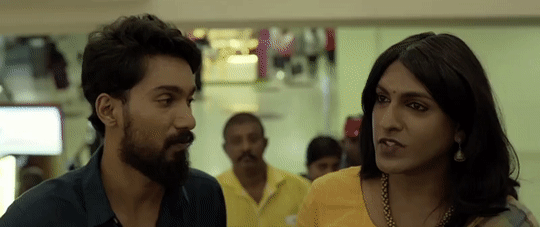



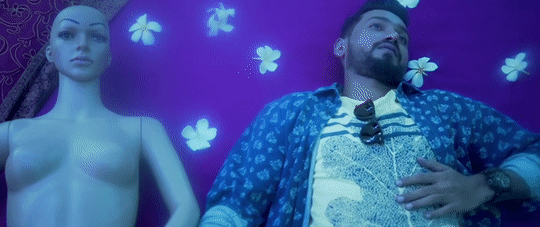




PIXELIA (2018) dir. Ratheesh Ravindran Kumar, a bachelor in his thirties leaves his corporate job in Kochi to become a graphic novelist. He embarks on a new life as an Uber driver in Kochi while working on his graphic novel titled Pixelia. One day a trans woman named Mandakini gets into his cab. They keep meeting, gradually bonding and building a relationship as Mandakini helps Kumar come to terms with his identity and future. (link in title)
#lgbt cinema#trans cinema#pixelia#pixelia 2018#indian cinema#malayalam cinema#lgbt#trans#transgender#india#lgbt movie#trans movies#indian movies#lgbt film#trans film#indian films#lgbt media#trans media#queer cinema#asian cinema#south asian cinema#Ratheesh Ravindran#Sanal Aman#Gowri Savithri#2018#2010s#2010s movies#2010s cinema#2010s films
92 notes
·
View notes
Text




Premalu (2024)
Director: Girish A.D.
#premalu#mamitha baiju#naslen#reenu x sachin#malayalam#mollywood#malayalam movies#Malayalam cinema#Girish Ad
28 notes
·
View notes
Text
Who wants to hold this hand?

May I?

#prabhash#hands#prithviraj sukumaran#salaar#varadeva#guess who just watch#jana gana mana#malayalam cinema#it's so good#and so important#but I could only see at handss because prithvi is so damn beautiful from head to toe#raise hands#if you want to hold Deva’s hand please raise your hands#get in line please one at a time before Varadha get to you and end you for touching his man lol#they both have pretty hands but prithvi hands are so delicate lmao#please i want to hold
36 notes
·
View notes
Text
manjummel boys. that’s it. that’s the post.
42 notes
·
View notes